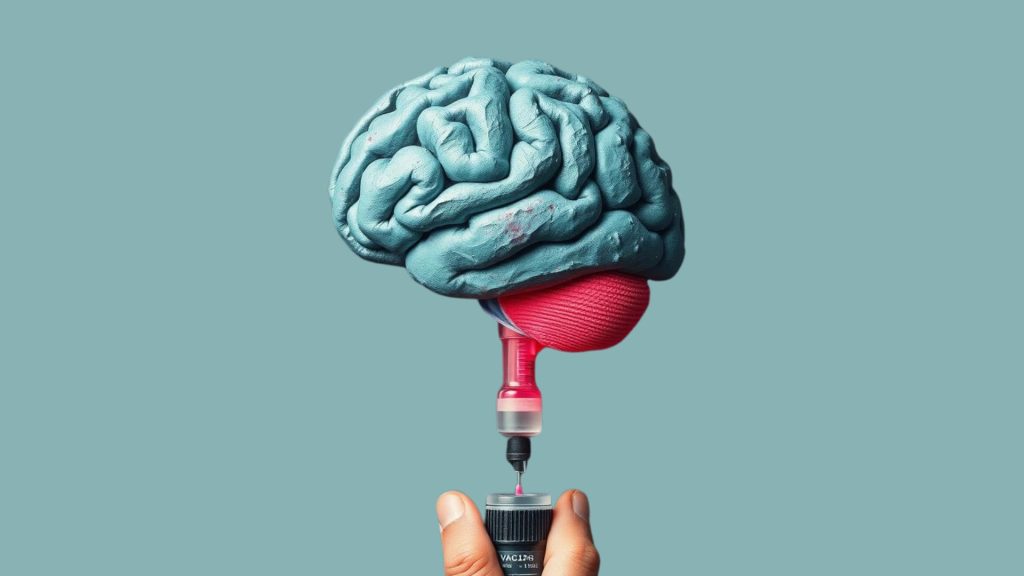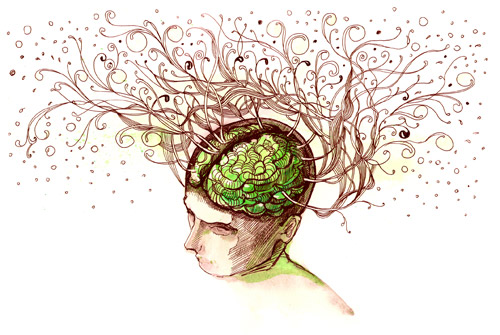Protect Your Brain with the Shingles Vaccine
by Dr. Edison de Mello, MD
A recently published study by the Brigham and Women’s Hospital and published in the journal Alzheimer’s Research & Therapy has highlighted a connection between shingles and cognitive decline, underscoring the importance of vaccination and other preventive measures.
These findings released this month suggest that shingles, a viral infection, could have long-term effects on brain health. Scientists found that individuals who had experienced shingles were about 20% more likely to suffer from cognitive decline afterward. This finding strengthens the growing belief that vaccinating against shingles might also offer protection against dementia.
Shingles is triggered by the varicella-zoster virus (VSV), the same virus responsible for chickenpox. Once a person recovers from chickenpox, the virus doesn’t disappear entirely but instead hides within the nervous system, lying dormant for years. The virus reactivates later in life in about one-third of those who had chickenpox, causing shingles. Shingles is not just an uncomfortable condition—it can bring severe pain, rashes, and other symptoms that may persist for up to five weeks. In some cases, people experience nerve pain that can last for years.
There has been some debate in the scientific community about whether viruses like VSV, which can remain hidden in the body, might cause subtle neurological damage over time, potentially leading to conditions like Alzheimer’s disease and dementia. While not all studies agree, this new research from Brigham and Women’s Hospital adds weight to the argument that there could be a link.
In this study, researchers analyzed data from three extensive, long-term studies that tracked the health of nursing and healthcare professionals. These studies asked participants about their cognitive health and whether they had had shingles. The analysis included nearly 150,000 people.
The findings were clear: individuals with shingles were significantly more likely to report cognitive decline. Even after adjusting for other factors, the research showed a 20% higher risk of cognitive issues in those who had shingles. This risk was especially pronounced in men who carried the APOE4 gene, a genetic variation known to increase the risk of Alzheimer’s.
While this study alone does not prove that shingles directly cause cognitive decline, it adds to a growing body of evidence suggesting a connection. For example, a recent study in the UK found that people who received the Shingrix vaccine, the latest and most effective shingles vaccine, were less likely to develop dementia over six years compared to those who received an older vaccine. Shingrix is already known to offer over 90% protection against shingles for at least seven years. Moreover, earlier research from the same team at Brigham and Women’s Hospital indicated that shingles might increase the risk of long-term cardiovascular issues. These findings suggest that preventing shingles could be even more beneficial than previously thought.
Take Action: Get Vaccinated Against Shingles at Akasha
“These findings highlight the long-term consequences of shingles and the critical role of public health efforts in prevention,” said Sharon Curhan, a researcher at Brigham and Women’s Hospital. “Given how common and debilitating shingles can be, and the availability of a highly effective vaccine, getting vaccinated could not only reduce the burden of shingles but also possibly lessen the risk of cognitive decline later in life.”
Considering that about one in three Americans over 50 are expected to develop shingles without vaccination, taking action to prevent it is a wise and straightforward decision. By getting vaccinated with two easy shots, you’re protecting yourself from a painful and potentially debilitating disease and possibly keeping your mind sharper as you age.
At Akasha, we strongly encourage our patients to consider the shingles vaccine. It’s a straightforward step to protect your physical and cognitive health. Schedule your vaccination today and safeguard your future well-being.
References:
1. Miller, L. A., & Yawn, B. P. (2015). Shingles and its complications: A review of the literature. *American Journal of Clinical Dermatology*, 16(1), 5-16.
2. Kiecolt-Glaser, J. K., & Glaser, R. (2002). Chronic stress and its implications for cognitive function: Insights from studies on aging, stress, and immunology. *Current Directions in Psychological Science*, 11(4), 131-135.
3. Santen, H. M., de Rijk, M. C., & de Lange, J. (2020). The impact of herpes zoster on cognitive function in older adults: A systematic review. *Neuropsychology Review*, 30(1), 31-45.
About the author:
Dr. Edison de Mello – the Founder and Chief Medical Officer of the Akasha Center in Santa Monica – is a Board-Certified Integrative Physician and licensed Psychotherapist. He’s treated patients from across the spectrum using his signature. East-meets-west approach. He writes for various publications and is a frequent guest on integrative medicine podcasts. He believes physicians should always Meet their patients before Meeting their Dis-EASE, a belief that he puts into practice every day. His latest book, BLOATED: How to Eat Without Pain, is available on Amazon, Barnes and Noble, and the Akasha Center.


















